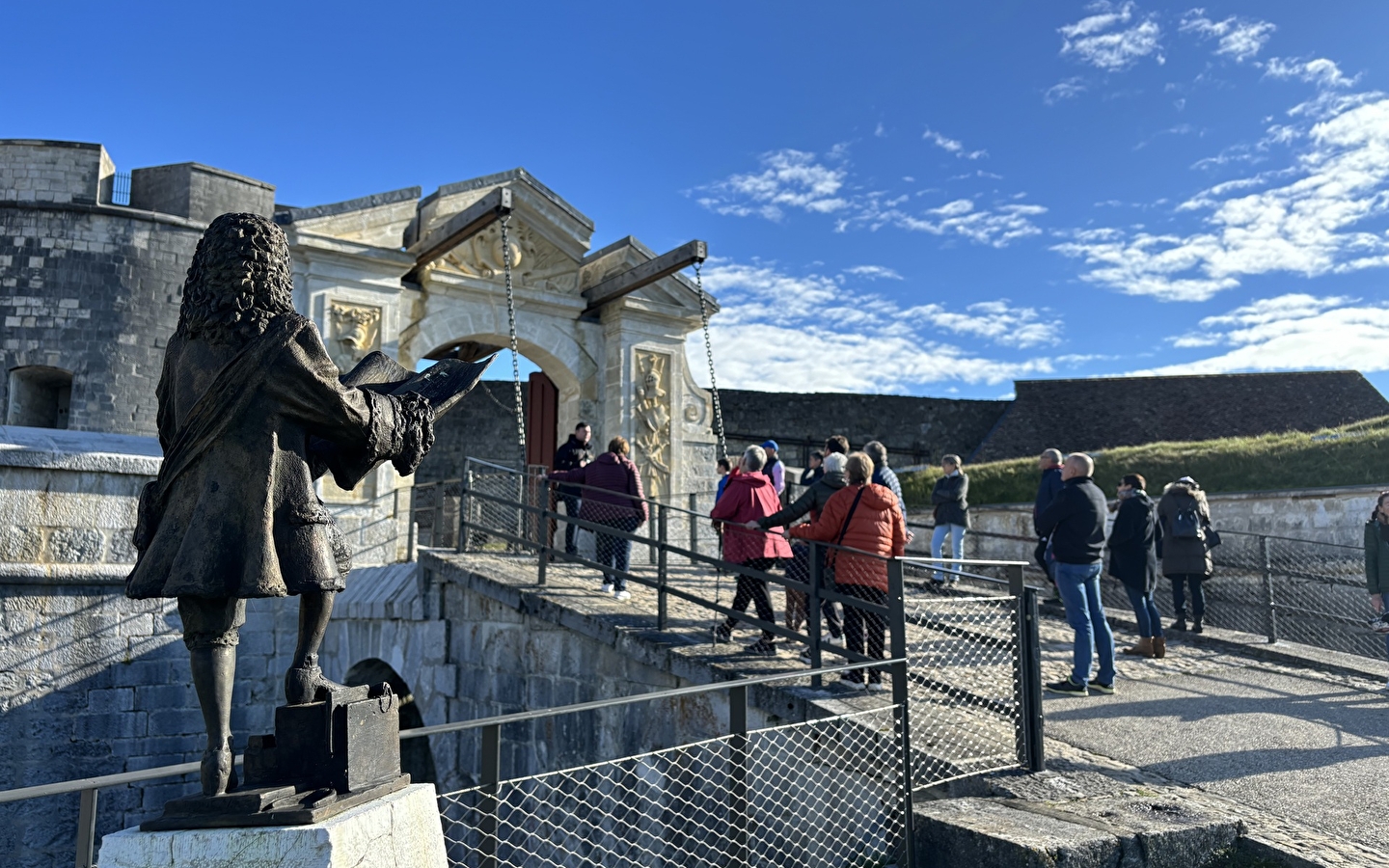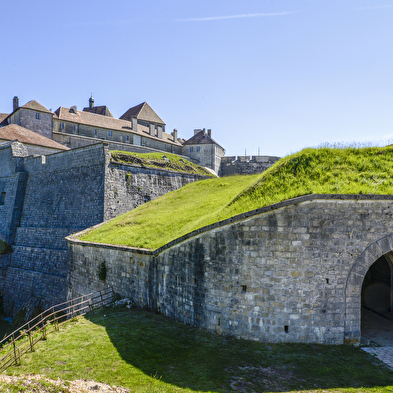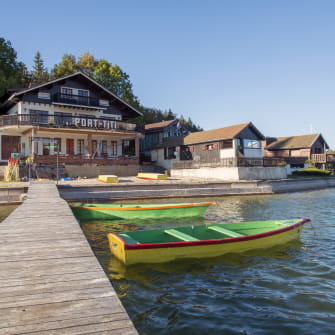
Château de Joux
Open from 1 April to 15 November 2025.
Mentioned as early as the 11th century, probably built of wood and then rebuilt in stone from the 12th century, this fabulous edifice was in turn a medieval castle, a frontier fortress redesigned by Charles V and then by Vauban, a state prison under the Ancien Régime, the Revolution and the Empire - Toussaint Louverture, the young Mirabeau and Heinrich Von Kleist were all imprisoned here - and then an artillery fort forming part of the Maginot Line.
Today, this monument, set in a grandiose and romantic natural setting, is a life-size book on the history of military architecture over the last ten centuries.
With some six hundred exhibits, the Musée d'Armes, now closed* to visitors, offers a genuine retrospective of French military weaponry and equipment, from the 17th century to the Lebel rifle of 1886. Some forty extremely rare exhibits have earned the museum an international reputation.
*The Musée d'Armes is closed for renovation, but part of the collection can be seen at the Musée de Pontarlier.
- French
- Payment cards, Cheques and postal orders, Holiday vouchers, Cash
- Pets welcome
- Picnic area
- Parking
- Toilettes
- Shop
- Specific theme activities
- Junior workshop
- Temporary exhibitions

- Base rate - full rate adult : Compris entre 7.5€ et 9€
- Youth Rate : Compris entre 6€ et 7€ (students, high school pupils)
- Special rate : Compris entre 5€ et 7€ (Cézam card, education pass, seniors)
- Child rate : Compris entre 3.5€ et 5€ (6 to 14 years)
- Gratuities (- 6 years and over, disabled persons)
- Special rate : Compris entre 19€ et 25€ (Family (2 adults + 2 children))
The Château de Joux is once again opening its doors under a regulated sanitary protocol. The staff will be equipped with protective equipment in order to offer you quality services in optimal conditions of reception. Provision of a game booklet for children aged 6 and over Guided tours: 3 guided tours per day: 10:30, 14:30 and 16:15











